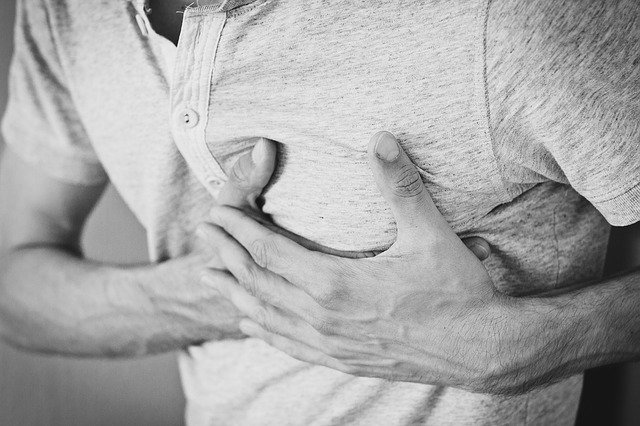Why risk of heart attack rises in winter, explain top cardiologists

Representative Image | Pixabay
Representative Image | Pixabay
New Delhi | Several studies suggest that during winter, risk of stroke, heart failure, cardiovascular issues, arrhythmia and disorders rises several times. Many top cardiologists think that it happens due to body’s physiology and the temperature drop that impacts the heart’s functionality.
According to a study of JAMA Cardiology, a monthly peer-reviewed medical journal, which analysed information on about 274,000 people living in Sweden in 2018, the risk of having a heart attack was greatest on days when the temperature was below freezing point.
PLOS One, open access scientific journal, in a study in 2015 found more than 31 per cent increase in heart attacks in the coldest months of the year compared with the warmest. Several studies suggest that during extreme cold conditions, the risk of getting a stroke increases by 80 per cent, particularly when temperature dips below 15 degree Celsius.
SPONSORED CONTENT
As temperatures drop, the blood vessels tighten and blood flow speeds up to help stay warm. That is why the blood pressure is often higher in colder seasons, opines cardiologists.
“Onset of winters can evoke mixed reactions. As per some study, the chances of person suffering from heart attack goes up nearly 33 per cent during winters. The Coronary arteries like other arteries can constrict during winter which can lead to poor supply of blood to the heart muscle. Decreased blood supply can precipitate myocardial ischemia and heart attack,” said Tarun Kumar, Professor of Cardiology, ABVIMS and RML Hospital.
Dr Tarun said that there is increased blood volume during winters. As in summer there is increased fluid loss through sweat which is missing in winters. It can lead to increase salt and fluid retention during winter which can lead to increase in blood pressure and heart attacks.
“Because of hormonal variations during winters there is increase in levels of clotting factors including fibrinogen. Adding fuel to fire is vasoconstriction and platelet aggregability along with clotting factors which can lead to increased tendency for clot formation and heart attacks”, he added.
SPONSORED CONTENT
Increased calorie intake and decreased physical activity can induce myriad physical changes in the body including weight gain and vascular changes which can provide a mileu for clot formation and heart attack, he said, adding that elderly, alcoholics, smokers, people with sedentary lifestyles are more at risk.
While talking about precautions, he advised to reduce exposure to cold, avoid excessive alcohol intake and there should not be coal based or faulty heating appliances in closed rooms. He also advised to go for regular physical activity and blood pressure and blood sugars level check ups after regular intervals.
Dr Vipul Gupta, Director Neurointervention, Artemis Agrim Institute of Neurosciences, said: “One of the prime reasons can be attributed that during the cold season the blood vessels constrict, which leads to increase in blood pressure, which means that the blood has to be really pumped harder in order to travel around the body, making it one of the major factors for the onset of stroke”.
SPONSORED CONTENT
“Also, there are various changes in the chemical balance in our body during winter including cholesterol levels and some other factors that increase the chances of clotting. Changes in the physical activity which usually decreases during the winter months as well as weight gain can play a role. Probably this is the reason stroke cases go up by 11 per cent during winter,” added Gupta.
Low temperature constricts the blood vessels which in turn increases blood pressure and aggregates blood clotting process, said Cardiologist Praveen Jha.
He said that Vitamin D deficiency is also common in winter which also contributes to cardiovascular disease. Air pollution and physical inactivity are also reasons for rise in heart attacks during winter, said Jha.
IANS
The English Post is on Telegram, click to join for regular news updates
SPONSORED CONTENT






